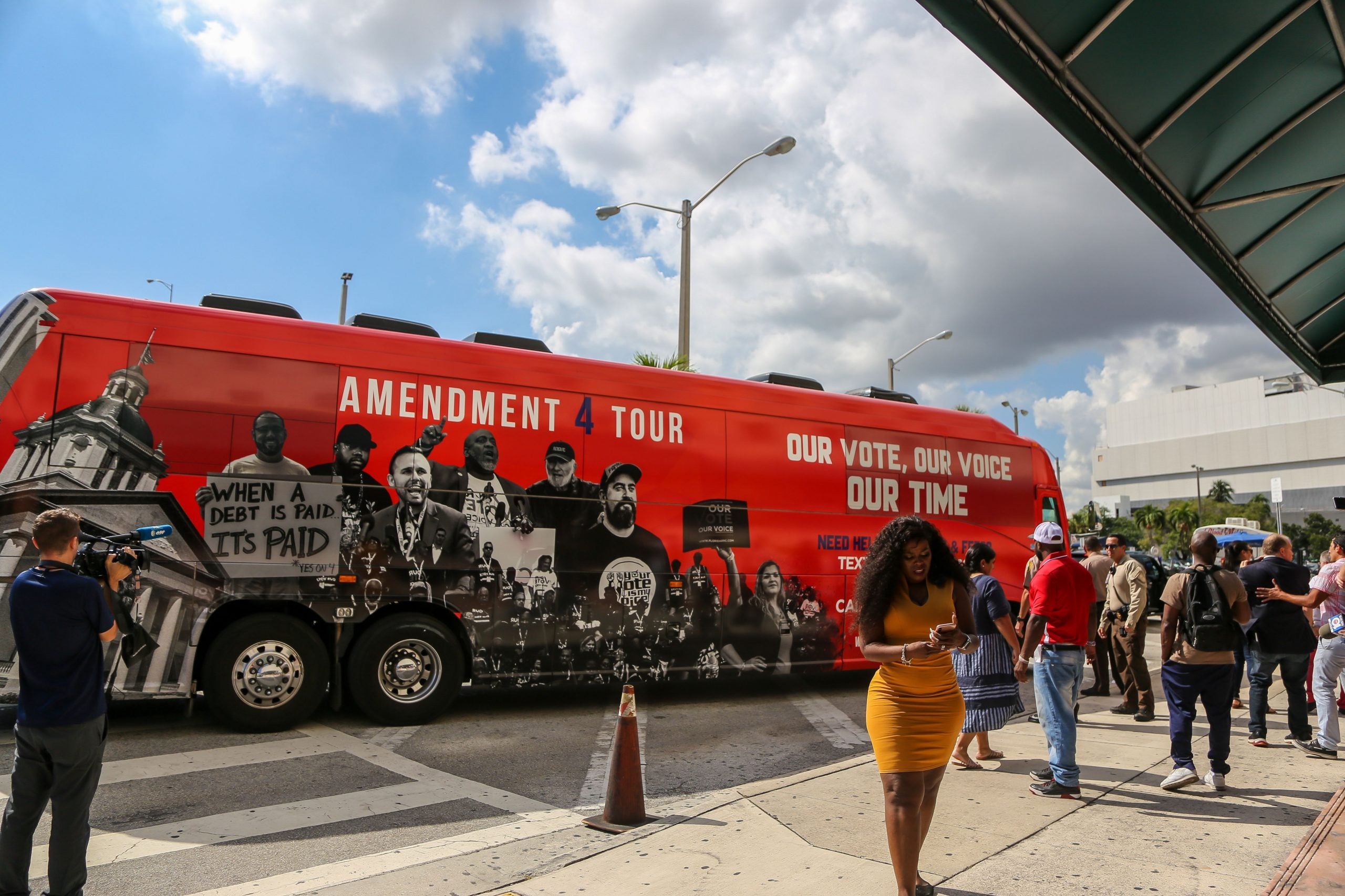
A federal judge on Tuesday essentially reiterated that “he said what he said,” emphasizing that a previous ruling he handed down that allowed returning citizens to vote regardless of what fines and fees they owed as a result of their past convictions applied to all ex-felons, not just the 17 citizens who sued Florida Gov. Ron DeSantis on the matter, the Washington Post reports.
The ruling comes as a huge win for voting rights activists, especially after Monday’s rulings by the United States Supreme Court and the Wisconsin Supreme Court regarding the state’s primary election on Tuesday.
As the Post notes, U.S. District Judge Robert Hinkle’s ruling on Tuesday further clears the path for about 1.4 million returning citizens to exercise their right to vote.
In 2018, the state voted “yeah” on Amendment 4, which sought to automatically restore the voting rights of those who have served time. However, Florida’s GOP-controlled legislature sought to put conditions on the amendment, passing a bill stating that all fines and fees were part of serving a sentence, and returning citizens had to ensure full payment before they could vote.
DeSantis signed the problematic bill into law, sparking the anger of voting rights activists who said that the condition was a poll tax (and thus, illegal.) According to the Post, fines and fees owed by ex-felons who have finished their sentences and are on probation total more than $1 billion.
Judge Hinkle emphasized the economic burden this condition could have on many returning citizens.
“Many thousands of felons are unable to pay their relevant financial obligations because of indigency,” Hinkle said, highlighting the case of one woman who was trying to pay her fines, but because of her income wouldn’t be able to pay in full until 2031. “Still others are unable to pay because the amount owed is out of reach even for a person who is not indigent.”
